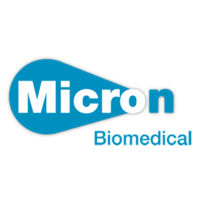预约演示
更新于:2025-05-07
MRV-MNP
更新于:2025-05-07
概要
基本信息
药物类型 预防性疫苗 |
别名 Measles and rubella vaccine microneedle patch、prophylactic vaccine (microneedle, measles-rubella) |
靶点- |
作用方式 刺激剂 |
作用机制 免疫刺激剂 |
治疗领域- |
在研适应症- |
非在研适应症- |
在研机构- |
权益机构- |
最高研发阶段无进展临床1/2期 |
首次获批日期- |
最高研发阶段(中国)- |
特殊审评- |
登录后查看时间轴
关联
1
项与 MRV-MNP 相关的临床试验NCT04394689
A Phase I/II, Double-blind, Randomized, Active-controlled, Age De-escalation Trial to Assess Safety and Immunogenicity of a Measles Rubella Vaccine (MRV) Microneedle Patch (MRV-MNP) in Adults, MRV-primed Toddlers, and MRV-naïve Infants
This is a phase 1/2, single-centre, double-blind, double-dummy, randomized, active-controlled, age de-escalation trial. Age de-escalation will be based on a review of the safety data from the preceding cohort (adults for toddlers and toddlers for infants) up to day 14 post study product administration by a data monitoring committee (DMC). All participants will receive either the MRV-MNP and a placebo (0.9% sodium chloride) SC injection (PLA-SC) or a placebo-MNP (PLA-MNP) and MRV by the SC route (MRV-SC). Only those study staff randomizing participants and preparing the study products for administration will be aware of the products administered. Those administering the study products, all other trial staff and the participants and parents will be blinded to treatment group. 45 adults (18 to 40-years-of-age) will be randomized in a 2:1 ratio. Thus, 30 adults will receive MRV-MNP and PLA-SC while 15 adults will receive MRV-SC and PLA-MNP. 120 toddlers (15 to 18 months-of-age) will be randomized in a 1:1 ratio. Thus, 60 toddlers will receive MRV-MNP and PLA-SC while the same number of toddlers will receive MRV-SC and PLA-MNP. 120 infants (9 to 10 months) will also be randomized in a 1:1 ratio. Thus, 60 infants will receive MRV-MNP and PLA-SC while the same number of infants will receive MRV-SC and PLA-MNP. Solicited local and systemic AE will be collected daily from all participants from the day of study product administration to day 13 post study product administration. Unsolicited AE and SAE will be collected from the day of study product administration to day 180 post study product administration. All participants will have laboratory investigations (hepatitis B, hepatitis C, hematology and biochemistry) conducted as part of screening. Adults will have safety laboratory investigations repeated on day seven and day 14 post study product administration. Toddlers and infants will have safety laboratory investigations repeated on day seven post study product administration. All participants will have measles- and rubella-specific SNA titers and measles- and rubella-specific IgG concentrations measured at baseline and day 42 and 180 post study product administration. Other Expanded Program on Immunization (EPI) vaccines due in toddler (oral poliovirus vaccine, diphtheria-tetanus-pertussis) and in infants (oral poliovirus vaccine, yellow fever vaccine and MenAfriVac® [due at 12 months]) will be given by the investigator team at the day 42 study visit (V4).
开始日期2021-05-19 |
申办/合作机构 |
100 项与 MRV-MNP 相关的临床结果
登录后查看更多信息
100 项与 MRV-MNP 相关的转化医学
登录后查看更多信息
100 项与 MRV-MNP 相关的专利(医药)
登录后查看更多信息
2
项与 MRV-MNP 相关的文献(医药)2024-05-01·The Lancet
A measles and rubella vaccine microneedle patch in The Gambia: a phase 1/2, double-blind, double-dummy, randomised, active-controlled, age de-escalation trial
Article
作者: Rota, Paul A ; Jarju, Lamin B ; El-Badry, Elina ; Akpalu, Edem ; Henry, Sebastien ; McAllister, Devin V ; Prausnitz, Mark R ; Ooko, Michael ; Jeffries, David ; Segonds-Pichon, Anne ; Crooke, Stephen ; Mendy, Anthony ; Njie, Abdoulie ; Adigweme, Ikechukwu ; Royals, Michael ; Danso, Baba ; Donkor, Simon ; Bruce, Andrew ; Clarke, Ed ; Yisa, Mohammed ; Goodson, James L ; Johnstone, Hilary
Trials
Study protocol for a phase 1/2, single-centre, double-blind, double-dummy, randomized, active-controlled, age de-escalation trial to assess the safety, tolerability and immunogenicity of a measles and rubella vaccine delivered by a microneedle patch in healthy adults (18 to 40 years), measles and rubella vaccine-primed toddlers (15 to 18 months) and measles and rubella vaccine-naïve infants (9 to 10 months) in The Gambia [Measles and Rubella Vaccine Microneedle Patch Phase 1/2 Age De-escalation Trial]
Article
作者: Jeffries, David ; Henry, Sebastien ; Yisa, Mohammed ; Donkor, Simon ; Jarju, Lamin B ; Danso, Baba ; Clarke, Ed ; Njie, Abdoulie ; Adigweme, Ikechukwu ; Bruce, Andrew ; Prausnitz, Mark R ; Royals, Michael ; Goodson, James L ; Akpalu, Edem ; Mendy, Anthony ; McAllister, Devin ; Rota, Paul A
100 项与 MRV-MNP 相关的药物交易
登录后查看更多信息
研发状态
登录后查看更多信息
临床结果
临床结果
适应症
分期
评价
查看全部结果
| 研究 | 分期 | 人群特征 | 评价人数 | 分组 | 结果 | 评价 | 发布日期 |
|---|
No Data | |||||||
登录后查看更多信息
转化医学
使用我们的转化医学数据加速您的研究。
登录
或

药物交易
使用我们的药物交易数据加速您的研究。
登录
或

核心专利
使用我们的核心专利数据促进您的研究。
登录
或

临床分析
紧跟全球注册中心的最新临床试验。
登录
或

批准
利用最新的监管批准信息加速您的研究。
登录
或

特殊审评
只需点击几下即可了解关键药物信息。
登录
或

生物医药百科问答
全新生物医药AI Agent 覆盖科研全链路,让突破性发现快人一步
立即开始免费试用!
智慧芽新药情报库是智慧芽专为生命科学人士构建的基于AI的创新药情报平台,助您全方位提升您的研发与决策效率。
立即开始数据试用!
智慧芽新药库数据也通过智慧芽数据服务平台,以API或者数据包形式对外开放,助您更加充分利用智慧芽新药情报信息。
生物序列数据库
生物药研发创新
免费使用
化学结构数据库
小分子化药研发创新
免费使用
